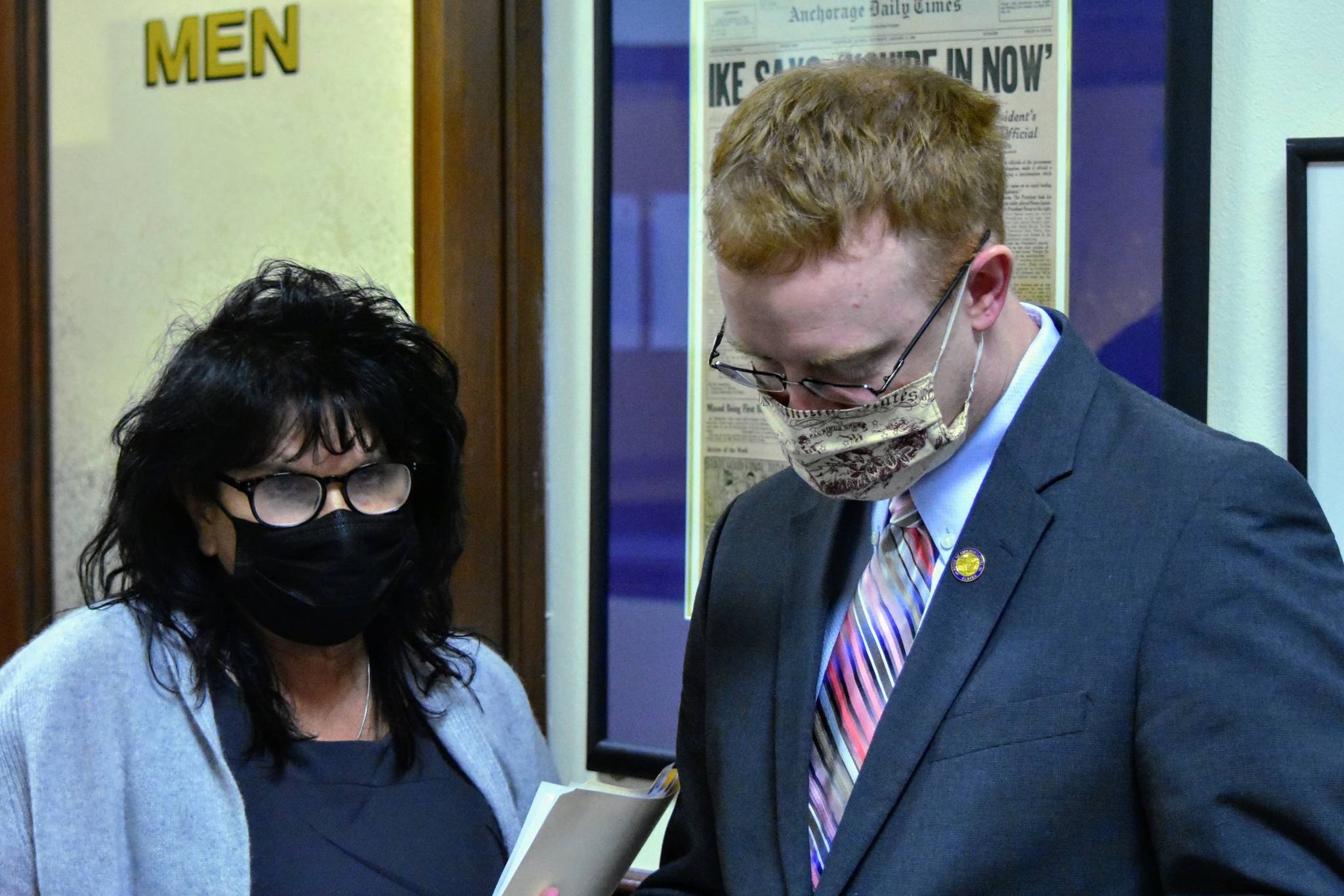With the end of the regular session quickly approaching, lawmakers have yet to set an amount for the annual Alaska Permanent Fund dividend.
How much goes to the dividend has been a contentious issue in the past few years, and though three budget bills are nearing completion in the Legislature, none of them set an amount for the PFD.
Over the weekend members of the Alaska House of Representatives narrowly voted down an amendment to the state’s operating budget distributing a $3,000 PFD. The House vote deadlocked at 20-20, meaning the amendment failed.
But that division didn’t fall strictly along party lines. While most members of the Republican minority caucus voted for the $3,000 PFD, Reps. Liz Snyder, D-Anchorage; Neal Foster, D-Nome; and Josiah Patkotak, I-Utqiaġvik; did as well. Similarly, most members of the bipartisan Majority Coalition voted against the amendment but were joined by minority members Reps. Steve Thompson, R-Fairbanks, and Bart LeBon, R-Fairbanks. Rep. Sara Rasmussen, R-Anchorage, who’s not a member of either caucus, voted in favor.
The state paid PFDs of roughly $1,600 in both 2018 and 2019, and $1,100 in 2017, according to the Department of Revenue. The largest dividend ever paid was $2,072 in 2015, according to DOR.
Procedural disagreements in the House over the weekend with House Bills 69 and 71, the operating and mental health budgets respectively, back to committee. On Monday, House Majority Coalition spokesperson Austin Baird told the Empire the bills were moved back to committee to give the minority the opportunity to advance some of the ideas they put forward in amendments.
But that decision was not made with the Republican minority, according to Minority Leader Cathy Tilton, R-Wasilla. The minority did not object to the move, but they played no part in the decision-making process, she said. Tilton said there hadn’t been much discussion this session on how to solve the state’s budget deficit, and the minority would have liked to have had those conversations.
[‘Time is running out’ lawmaker warns of state finances]
In March, Legislative Finance Director Alexei Painter told the Senate Finance Committee that despite years of cuts the state’s annual budget remained at about $4 billion each year. The University of Alaska had cut its budget over three years by $60 million, Painter told the committee, but spending in the Department of Corrections increased by roughly the same amount. At that committee meeting in March, Sen. Bert Stedman, R-Sitka, noted that the problem has spanned two governors and three legislatures.
Painter told lawmakers at that meeting without a PFD, or with PFD of $500, the state has no deficit. A bill for $500 PFD was introduced by the House Ways and Means Committee in late March and will be heard in committee this week.
This year, the operating and capital budgets are mostly flat and are similar to what the governor proposed in his budget last year, according to Sen. Jesse Kiehl, D-Juneau, mainly because there’s so much federal relief money. Dunleavy has backed away from major structural changes like splitting the Department of Health and Social Services or closing Division of Motor Vehicles offices, Kiehl said.
“You’ll see dozens of transactions that are different but for the most part they’re very close,” Kiehl said of the governor’s proposed budget and the budget lawmakers have been crafting. “A lot of the super-contentious things have fallen away.”
Money from the American Rescue Plan Act can be used to fund the state’s budget this year, Kiehl said, freeing up state funds for a dividend.
“We started this session wondering if this would be a zero-dividend year, which I don’t support,” he said.
But the amendment offered over the weekend would have required the state to draw more from the ERA than the 5% of market value allowed each year. Lawmakers of all political stripes, Kiehl among them, have voiced concern about overdrawing the ERA, which they say would decrease the amount of future funds available.
House leadership has said they’re confident a budget can be passed by the end of session on May 19, but after the contentious session over the weekend it’s not clear when the budget bills will be voted on again. Tilton said she expects to see the House budget bills back on the floor within the week and that her caucus has been working on potential solutions to the PFD issue. The minority doesn’t have a unified approach to the PFD, Tilton noted, and conversations are happening within the caucus about the issue.
Still, Tilton said the minority is committed to finishing the Legislature’s work within the 121-day deadline.
“The PFD issue is always an issue that is a divisive issue, it could potentially be challenging,” Tilton said. “The best solution is to have had this conversation, which should have started a long time ago.”
Once the House passes the operating and mental health budgets, the bills will go to the Senate which has been working on the capital budget. The Senate this year has been much more collaborative, Kiehl said, and he expects fairly quick action from senators once the budget gets to them.
But while House members voted down a $3,000 PFD, Kiehl said he expected to hear the proposal in the Senate as well, either in committee or on the floor.
“I think the federal money has given us the opportunity to maintain a dividend and we need to do that,” Kiehl said, adding, “I remain committed to not overdrawing the earnings reserve.”
Contact reporter Peter Segall at psegall@juneauempire.com. Follow him on Twitter at @SegallJnuEmpire.

